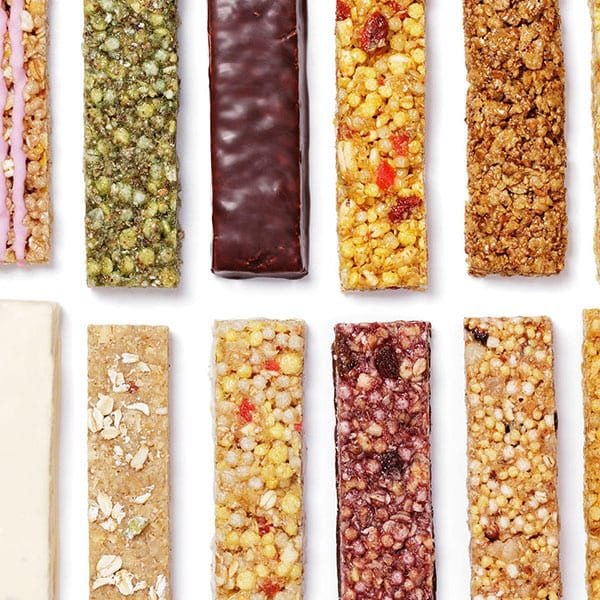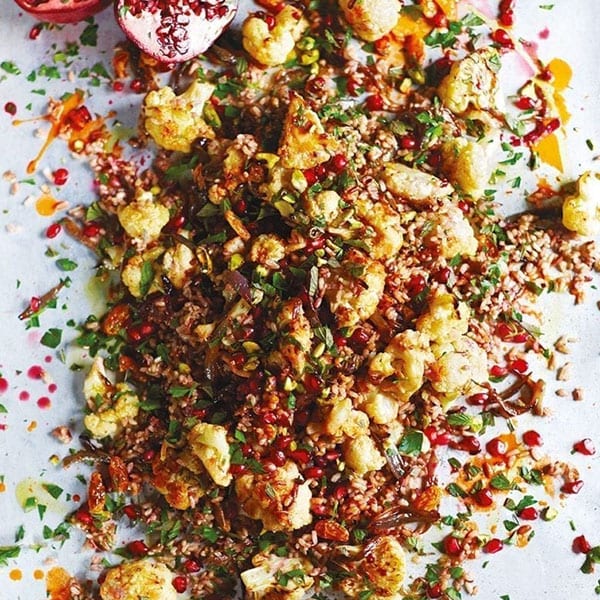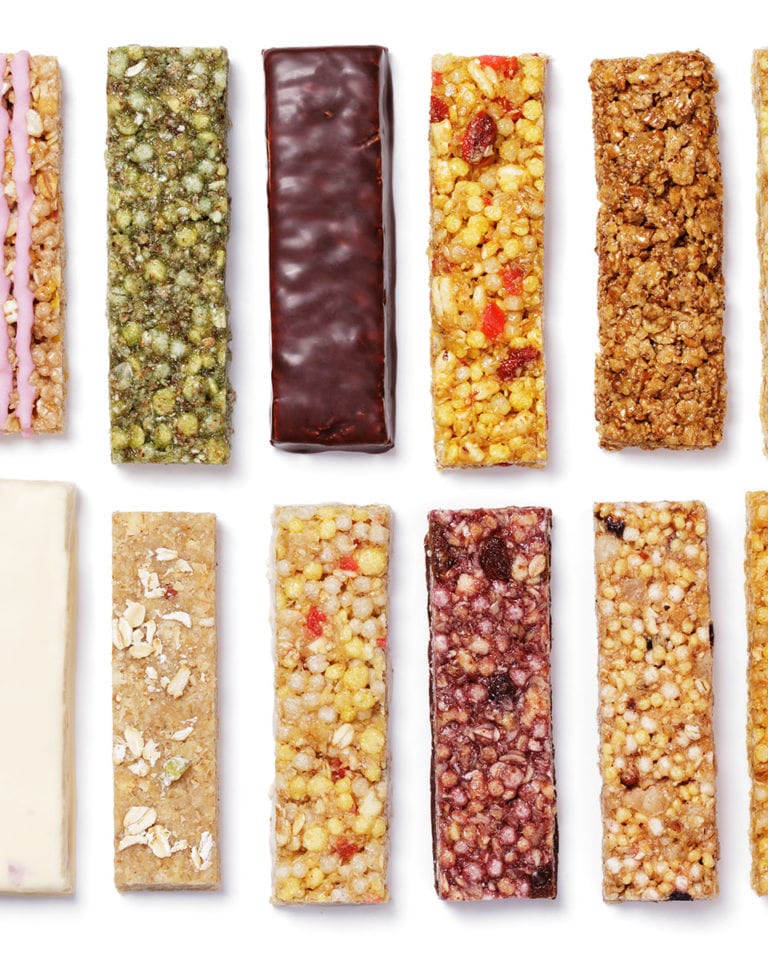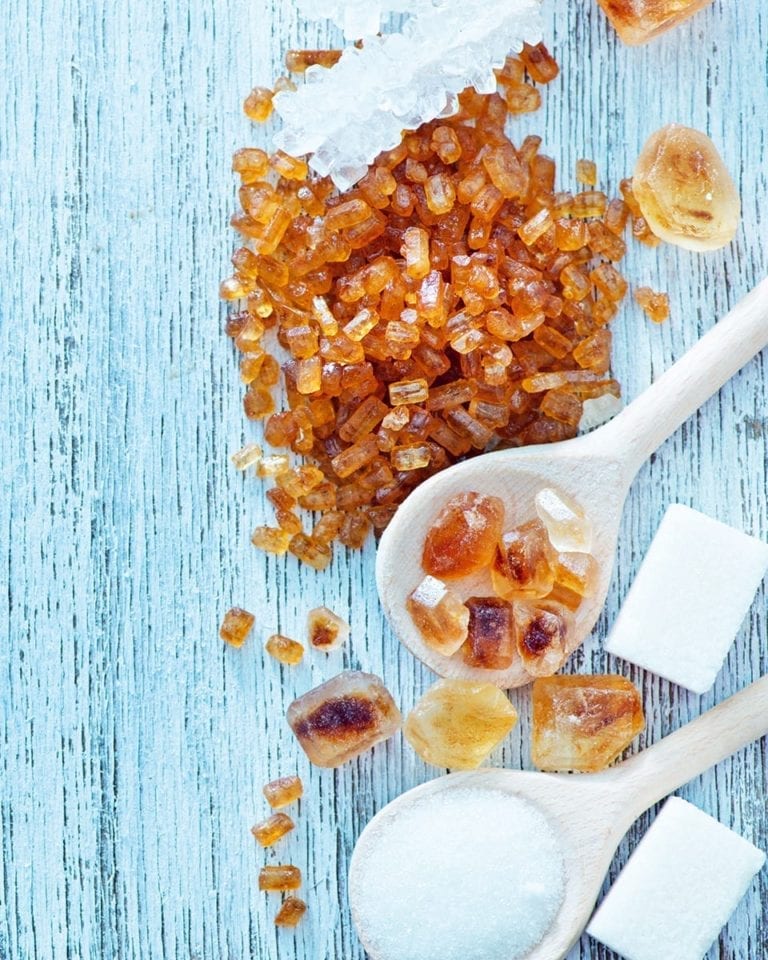What’s behind the protein obsession?
The world has gone protein mad. Supermarket shelves are stacked with products containing added protein, from bottled water and coffee to energy bars and noodles. So what’s behind the protein obsession, asks Sue Quinn. Should we all be eating more? Or is it possible to consume too much?

Images of protein shakes and protein bowls litter the websites of wellness bloggers, while Instagram has more than 22 million posts bearing the hashtag #protein. Manufacturers are even adding more of this macronutrient to naturally protein-rich foods such as cheese, as if it were a magic elixir.
It’s an extraordinary mania, fuelled by headlines and internet articles claiming high-protein diets aid weight loss, help create muscle bulk and are better for us than standard eating plans. And with food manufacturers cashing in on the trend, it’s difficult to make informed decisions about how much is best.
What is protein?
Protein is found throughout the body – in muscle, bone, skin, hair and tissues – and it’s essential for cell growth and repair. It also provides the body with energy. The building blocks of protein are amino acids: for adults, eight amino acids are referred to as ‘essential’ because we need to get them through food; the rest can be synthesised by the body.
Different foods contain varying kinds and amounts of amino acids. Animal proteins (meat, eggs and dairy) are considered complete sources of protein because they contain all the essential amino acids. Plant proteins (such as pulses and cereals) often lack at least one amino acid, although vegetarians can generally get all the protein they need by eating a varied plant-based diet.
Whey protein, a by-product of cheesemaking, is rich in essential amino acids as well as vitamins and minerals, although the quality varies. Food manufacturers add it to an ever-growing range of food and drinks; the global market for whey protein is soaring and set to reach $14.5bn (£11.2bn) by 2023.
How much do we need?
In the UK, adults are advised to eat around 0.75g of protein per kilogram of bodyweight per day, according to the British Nutrition Foundation – the equivalent of 60g for an 80kg adult. This can be difficult to visualise, but a roast chicken breast contains around 43g of protein, a 225g steak 70g and a large egg 6g. The average amount of protein actually consumed in the UK is 88g per day for men and 64g for women – well above what’s recommended.
Some groups of people do need more than the recommended amount: children, adolescents, pregnant women, those recuperating from illness or surgery and athletes all benefit from extra protein because their bodies are growing or repairing. Older people in particular require a higher intake in order to conserve muscle mass, which tends to deteriorate with age, along with appetite.
Drew Price, a nutritionist with the Hugh Sinclair Unit of Human Nutrition at Reading University, says there’s good evidence that high-protein diets can aid weight loss. “Protein helps you to stay on a low-calorie diet more easily because it fills you for longer than fat or carbohydrates,” he explains. “Also, if you’re losing weight, you want to lose fat not muscle, and more protein tips the balance in terms of muscle being conserved and fat being used.”
He says one theory is that some people overeat in the first place because their bodies crave more protein and gain weight because they consume more fat and carbohydrate in the process. This doesn’t mean, however, that protein-pumped energy bars, breakfast cereals and yogurt, which are often highly processed and laden with sugar and additives, are a good choice.

“People can get more than enough protein eating minimally processed sources such as lean meat, fish, eggs, nuts and seeds, and pulses,” Price stresses. “Food manufacturers are simply jumping on the bandwagon.”
Are there health risks?
Price says there’s no evidence that consuming a bit more than the recommended amount of protein is risky in itself, except for a small number of people with kidney or metabolic conditions. He says some studies suggest a very high-protein diet might have a negative impact on gut bacteria, so he recommends eating plenty of probiotics and prebiotics – foods that promote
and sustain a healthy gut.
But nutritionists stress there’s an increased risk of being deficient in other important nutrients, especially fibre, if we stick to a high-protein diet. A landmark study commissioned by the World Health Organisation and published earlier this year confirmed that eating more fibre by way of wholegrain cereals, pasta and bread cuts the risk of heart disease and early death. But the surging popularity of low-carb/high-protein diets has seen many people eat less – not more – of the fibrous food researchers say can save lives.

“High-protein diets can displace other foods that would be present in a balanced diet – for example wholegrains and many fruits, which are higher in carbohydrate,” says registered dietitian Dr Frankie Phillips. “The latest research shows we’re not eating enough fibre and that many people don’t eat the recommended 30g fibre per day.”
Equally importantly, any dietary obsession can be potentially harmful and lead to unhealthy relationships with food.
The bottom line?
Most people get all the protein they need through their everyday diet, although some groups do benefit from a bit more.
Highly processed protein-boosted foods aren’t necessary or recommended by nutritionists. There’s good evidence that high-protein diets can aid weight loss, but it can be difficult to eat enough fibre if you drastically reduce your carbohydrate intake.
Subscribe to our magazine
Food stories, skills and tested recipes, straight to your door... Enjoy 5 issues for just £5 with our special introductory offer.
Subscribe
Unleash your inner chef
Looking for inspiration? Receive the latest recipes with our newsletter


